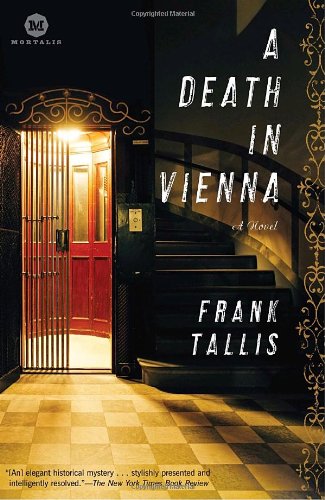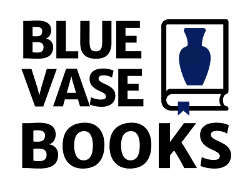1
/
of
1
Blue Vase Books
A Death in Vienna: A Max Liebermann Mystery - 6869
A Death in Vienna: A Max Liebermann Mystery - 6869
Regular price
$5.89
Regular price
Sale price
$5.89
Unit price
/
per
In stock
Couldn't load pickup availability
In 1902, elegant Vienna is the city of the new century, the center of discoveries in everything from the writing of music to the workings of the human mind. But now a brutal homicide has stunned its citizens and appears to have bridged the gap between science and the supernatural. Two very different sleuths from opposite ends of the spectrum will need to combine their talents to solve the boggling crime: Detective Oskar Rheinhardt, who is on the cutting edge of modern police work, and his friend Dr. Max Liebermann, a follower of Sigmund Freud and a pioneer on new frontiers of psychology. As a team they must use both hard evidence and intuitive analysis to solve a medium’s mysterious murder–one that couldn’t have been committed by anyone alive.
__________________________________________________________
THE MORTALIS DOSSIER- PSYCHOLOGICAL THRILLERS: THE CURIOUS CASE OF PROFESSOR SIGMUND F. AND DETECTIVE FICTION
Summertime–the Austrian Alps: A middle-aged doctor, wishing
to forget medicine, turns off the beaten track and begins a strenuous
climb. When he reaches the summit, he sits and contemplates the distant
prospect. Suddenly he hears a voice.
“Are you a doctor?”
He is not alone. At first, he can’t believe that he’s being addressed.
He turns and sees a sulky-looking eighteen-year-old. He recognizes
her (she served him his meal the previous evening). “Yes,” he replies.
“I’m a doctor. How did you know that?”
She tells him that her nerves are bad, that she needs help.
S ometimes she feels like she can’t breathe, and there’s a hammering in
her head. And sometimes something very disturbing happens. She sees
things–including a face that fills her with horror. . . .
Well, do you want to know what happens next? I’d be surprised if
you didn’t.
We have here all the ingredients of an engaging thriller: an isolated
setting, a strange meeting, and a disconcerting confession.
So where does this particular opening scene come from? A littleknown
work by one of the queens of crime fiction? A lost reel of an
early Hitchcock film, perhaps? Neither. It is in fact a faithful summary
of the first few pages of Katharina by Sigmund Freud, also known as
case study number four in his Studies on Hysteria, co-authored with Josef
Breuer and published in 1895.
It is generally agreed that the detective thriller is a nineteenthcentury
invention, perfected by the holy trinity of Collins, Poe, and
(most importantly) Conan Doyle; however, the genre would have
been quite different had it not been for the oblique influence of psychoanalysis.
The psychological thriller often pays close attention to
personal history–childhood experiences, relationships, and significant
life events–in fact, the very same things that any self-respecting
therapist would want to know about. These days it’s almost impossible
to think of the term “thriller” without mentally inserting the prefix
“psychological.”
So how did this happen? How did Freud’s work come to influence
the development of an entire literary genre? The answer is quite simple.
He had some help–and that help came from the American film
industry.
Now it has to be said that Freud didn’t like America. After visiting
America, he wrote: “I am very glad I am away from it, and even more
that I don’t have to live there.” He believed that American food had
given him a gastrointestinal illness, and that his short stay in America
had caused his handwriting to deteriorate. His anti-American sentiments
finally culminated with his famous remark that he considered
America to be “a gigantic mistake.”
Be that as it may, although Freud didn’t like America, America
liked Freud. In fact, America loved him. And nowhere in America was
Freud more loved than in Hollywood.
The special relationship between the film industry and psychoanalysis
began in the 1930s, when many émigré analysts–fleeing
from the Nazis–settled on the West Coast. Entering analysis became
very fashionable among the studio elite, and Hollywood soon
acquired the sobriquet “couch canyon.” Dr. Ralph Greenson, for
example–a well-known Hollywood analyst–had a patient list that
included the likes of Marilyn Monroe, Frank Sinatra, Tony Curtis,
and Vivien Leigh. And among the many Hollywood directors who
succumbed to Freud’s influence was Alfred Hitchcock, whose thrillers
were much more psychological than any that had been filmed before.
In one of his films Freud actually makes an appearance–well, more or
less. I am thinking here of Spellbound, released in 1945, and based on
Francis Beedings’s crime novel The House of Dr. Edwardes.
T he producer of Spellbound, David O. Selznick, was himself in
psychoanalysis–as were most of his family–and so enthusiastic was
he about Freud’s ideas that he recruited his own analyst to help him
vet the script. Hitchcock’s film has everything we expect from a psychological
thriller: a clinical setting, a murder, a man who has lost his
memory, a dream sequence, and a sinewy plot that twists and turns
toward a dramatic climax. That
ASIN: 0812977637
VSKU: BVV.0812977637.G
Condition: Good
Author/Artist:Tallis, Frank
Binding: Paperback
ASIN: 0812977637
VSKU: BVV.0812977637.G
Condition: Good
Author/Artist:Tallis, Frank
Binding: Paperback
SKU:BVV.0812977637.G
Shipping & Local Pick Up
Shipping & Local Pick Up
Shipping: Most orders are shipped within 24 hours. Please allow 4-14 days after the item has shipped for delivery. Faster shipping is available for purchase at checkout.
Local Pick Up: Orders will be available for pick up within 24 hours. Pick up at the front desk Thursday-Sunday 10am-6pm .After hours pick ups are available Monday-Wednesday 7am-3pm at the Shipping & Receiving entrance.


